In mining we have something no one else has. "Great value"

- The mining industry is not just about coal. It is also about extracting other raw materials.
- - We should make sure that when closing down coal mines, we do not lose mining skills and competences - emphasized the participants of the "Mining Industry" session, which took place during the European Economic Congress.
- As the panelists pointed out, a balanced approach to transformation and the extractive industry is needed, which continues to provide thousands of jobs and build the economic resilience of regions.
Sławomir Krenczyk, Vice President of Development at Lubelski Węgiel Bogdanka, recalled that the company recently adopted a development strategy until 2030, with a perspective until 2035. This strategy is a response to the accelerating energy transformation and growing regulatory requirements in the industry.
By 2030, Lubelski Węgiel Bogdanka assumes the production of commercial coal at an average level of 8.2 million tonnes per year, compared to 7.9 million tonnes in 2024. In turn, in the years 2031-2035, the planned production is to amount to approx. 6.6 million tonnes per year due to the expected decline in demand for electricity from coal.
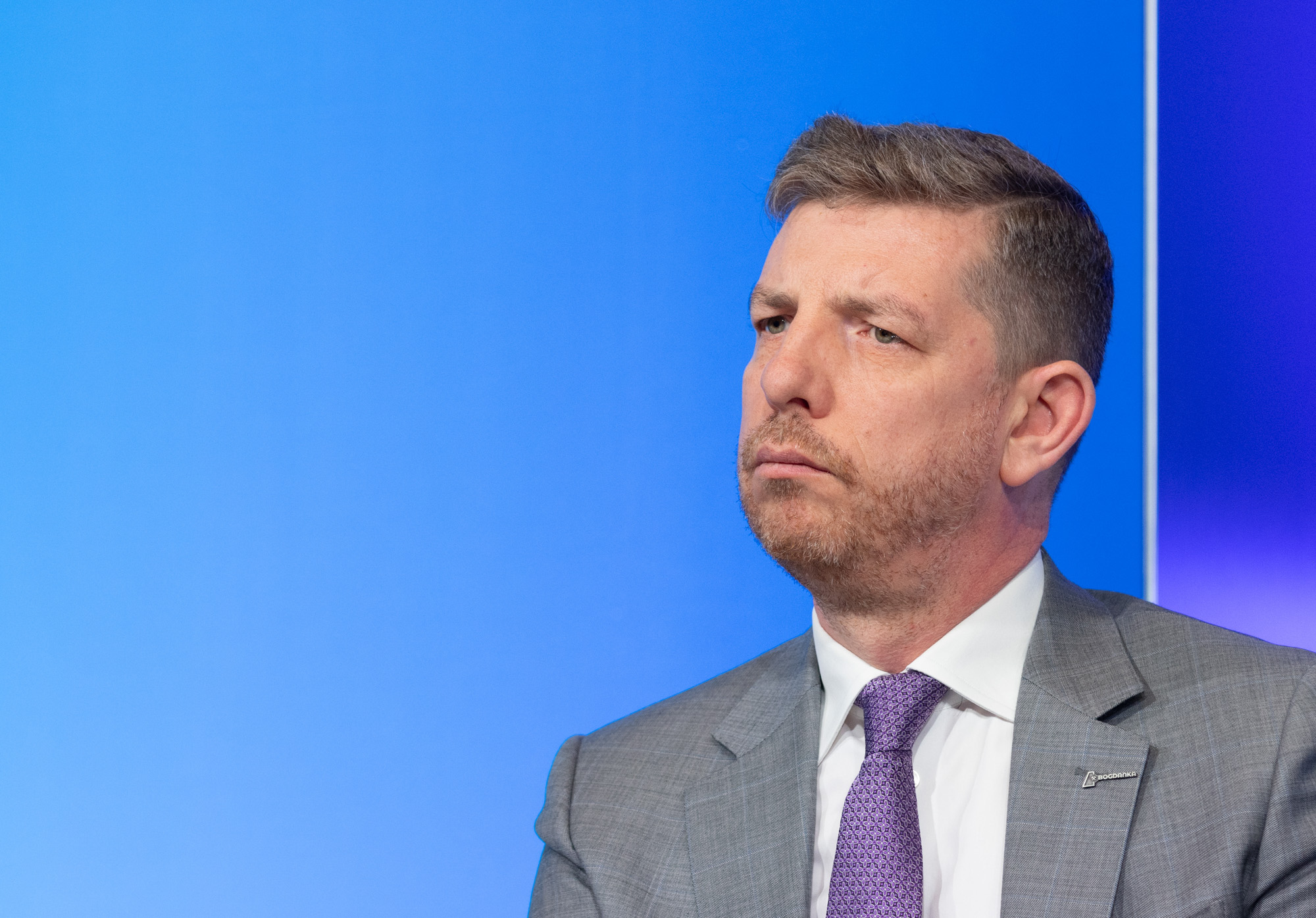
As indicated by Sławomir Krenczyk, the Lubelski Węgla Bogdanka Group plans to intensify foreign sales, focusing in particular on Ukraine. LW Bogdanka's competitive advantage in this direction is its geographic advantage .
Sławomir Krenczyk also said that one of the pillars of revenue diversification is to be the development of rail transport as an independent unit operating within the group. It is also planned to launch operations in the field of thermal processing of medical waste due to the close proximity of the mine and the hospital in Łęczna. Participation in the creation of an economic zone at the mine is also planned.
Vice President Krenczyk indicated that Bogdanka's priorities include: efficiency, productivity and economy - along with mining technology. Thanks to this, the company achieves the highest efficiency rate in Polish coal mining - 1,503 tons per employee.
- However, in the strategy announced on April 16 this year, we show aspirations to increase this efficiency indicator to a parameter of almost 1,800 tons per employee - emphasized vice-president Krenczyk. - I would like to emphasize that we do not take a single złoty of public subsidies, but we operate entirely according to economic calculations. Looking at it from a purely economic perspective, we are the cheapest coal producer . Our costs are the lowest. However, it happens today on the Polish market that Polish producers, our competitors, are able to offer coal at a lower price than Bogdanka is able to offer. This is a certain difficulty and we would really prefer or count on the market to function in such a way that we will all have equal opportunities, also in this respect - emphasized Sławomir Krenczyk.
See the report from the "Mining Industry" session:
Vice President of Jastrzębska Spółka Węglowa Adam Rozmus indicated that the production of coking coal, as the main and particularly profitable product of the company, is to increase. In January 2026, the Czech company OKD is to end the production of coking coal. Therefore, JSW will be the only producer of coking coal in the EU .
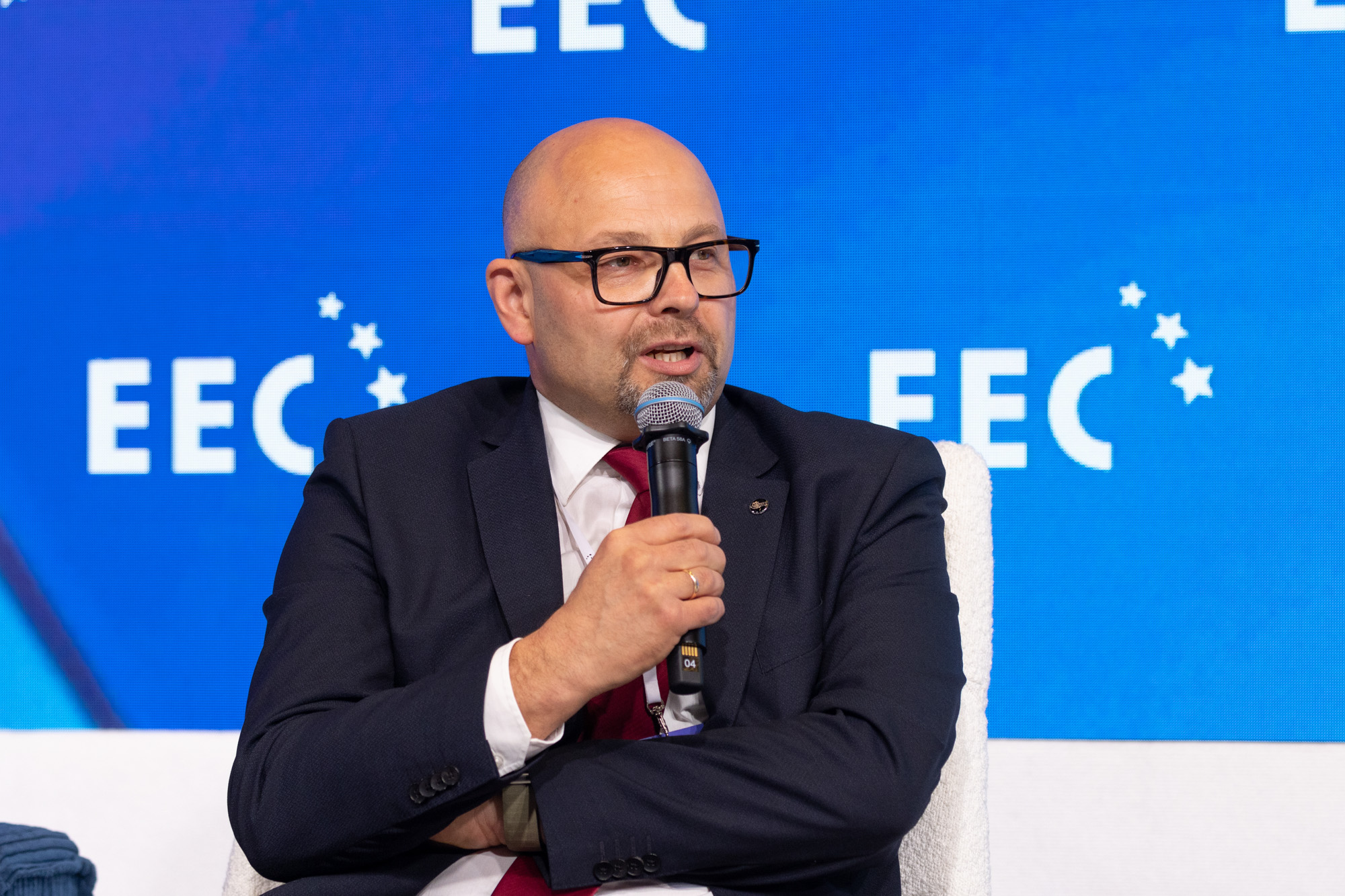
He pointed out that coking coal is an essential element for the energy transformation and therefore essential for the European industry. He emphasized that 70 percent of steel in the world is produced using blast furnace technology using coke and there are no other economically justified technologies for producing steel.
Vice President Rozmus admitted that JSW is subject to economic cycles, and the prices of both coke and coking coal on global markets have fallen. The market environment is currently unfavourable for the company. JSW is in the process of implementing the Strategic Transformation Plan. - We have defined priorities that are to set this company for years of operation. Our actions are aimed at ensuring that these fluctuations in the economy are not so drastically felt by us - indicated Vice President Rozmus. Among the key elements of the plan, he mentioned the optimisation of mining processes and building awareness of the staff. - We are not turning the table called mining over now, we will not cause us to extract differently. We will definitely extract better and more - noted Rozmus.
Asked about the threat of the company losing liquidity, Vice President Rozmus admitted that the board is aware that such a problem may occur. - However, we are launching a number of elements to prevent this from happening - he noted.
However, there is a question whether the Strategic Transformation Plan will be enough for Jastrzębska Spółka Węglowa to cope and whether it will not be necessary to resort to personnel costs. Vice President Rozmus stated that "it is difficult to navigate the matter that the company currently is, which is set in stone in many aspects, including those concerning employees". - It is difficult to navigate the matter that we have no influence on, such as the prices of coking coal or coke itself - he said. - That is why we are taking action to transform not only JSW, but the entire group - indicated Adam Rozmus, reminding that it is formed by the parent company, 17 companies, employing a total of 32 thousand employees.
Vice President Rozmus noted that the ten-year employee guarantees are valid for another seven years for approximately 21,000 JSW employees, as well as employees of JSW Koks.
- Coking coal has no alternative in the steel industry. If we want to be a serious partner in the transformation, we must start by understanding that the industry needs stable foundations, not just climate ambitions. Coking coal produced in JSW is an important raw material in the supply chain. Without it, steel structures, infrastructure, and modern energy installations will not be built - emphasized Adam Rozmus.
Coal mining is doing well in the worldDuring the session, it was pointed out that mining in Poland currently also means competence, safety and environmental responsibility. Therefore, a balanced approach to transformation and industry is needed, which continues to provide thousands of jobs and builds the economic resilience of regions. In addition, until nuclear power plants are built in our country, coal will be a significant stabilizer of our energy system.
Coal mining is doing quite well in the world, and in countries such as China, Indonesia and India, extraction is increasing. Also Donald Trump, the president of the USA, announced that the role of coal will increase .
- For as long as I can remember, we have always discussed how to adapt the needs of mining and energy so that they function together. I think that it will slowly come together. When we look to the future, nuclear energy is a matter of the second half of the 40s, wind energy will also reach 18 GW in 2040. Therefore, we will have to work with coal in the energy sector for a dozen or so years - indicated Leszek Pietraszek, Deputy Marshal of the Silesian Voivodeship.
He added that it is important that where mining is becoming a thing of the past, new businesses are created that will provide jobs for the region's inhabitants.
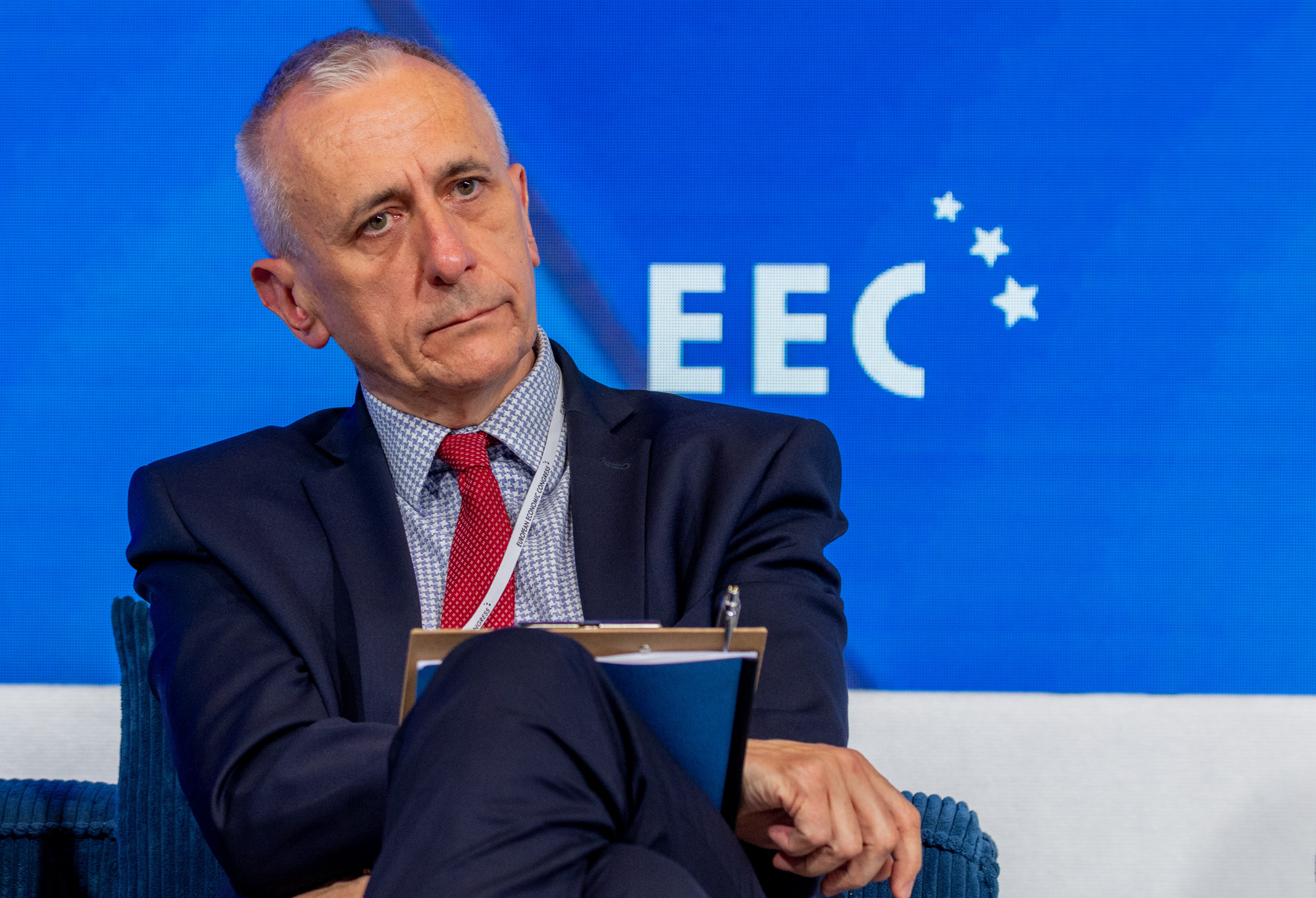
We have a social contract for mining, which includes, among other things, the dates for closing individual coal mines . In a few years, this will happen to the Bolesław Śmiały mine in Łaziska. So there is no shortage of concern in the city.
- We are all aware that the process of moving away from coal is ongoing. However, we forget that this transformation process is not only an engineering and technical problem, but also a cultural one - said Grzegorz Conrad, director of the Bolesław Śmiały mine, belonging to the Polish Mining Group. - By carrying it out, we can also give the impression that we are stripping the employees of their dignity, because this industry has been embedded in the local culture for decades - reminded Grzegorz Conrad.
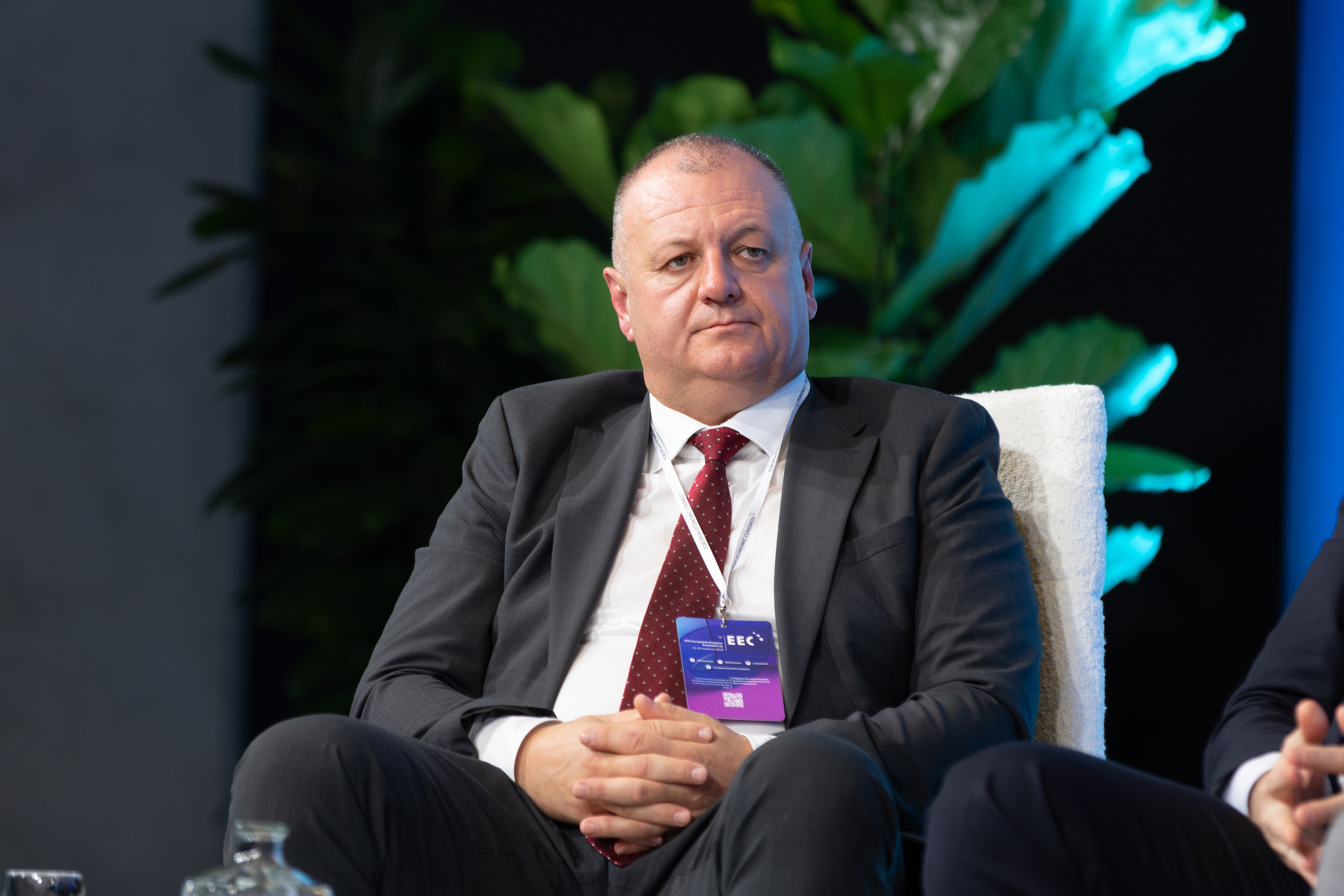
He pointed out, citing Leszek Pietraszek's words, that money for moving away from coal is not everything . - We still need ideas and investors who could come there. And what if they don't come? - asked Grzegorz Conrad.
To date, we have not received notification of a social agreement for mining in the European Commission . Janusz Steinhoff, former Deputy Prime Minister and Minister of Economy, stated that this is a highly worrying situation, because the lack of this acceptance would mean uncontrolled bankruptcy for coal companies.
- I do not expect the European Commission to dare to contest this aid, however it is high time that we had such consent for public aid, which we provide in very significant amounts from the state budget - emphasized Janusz Steinhoff.
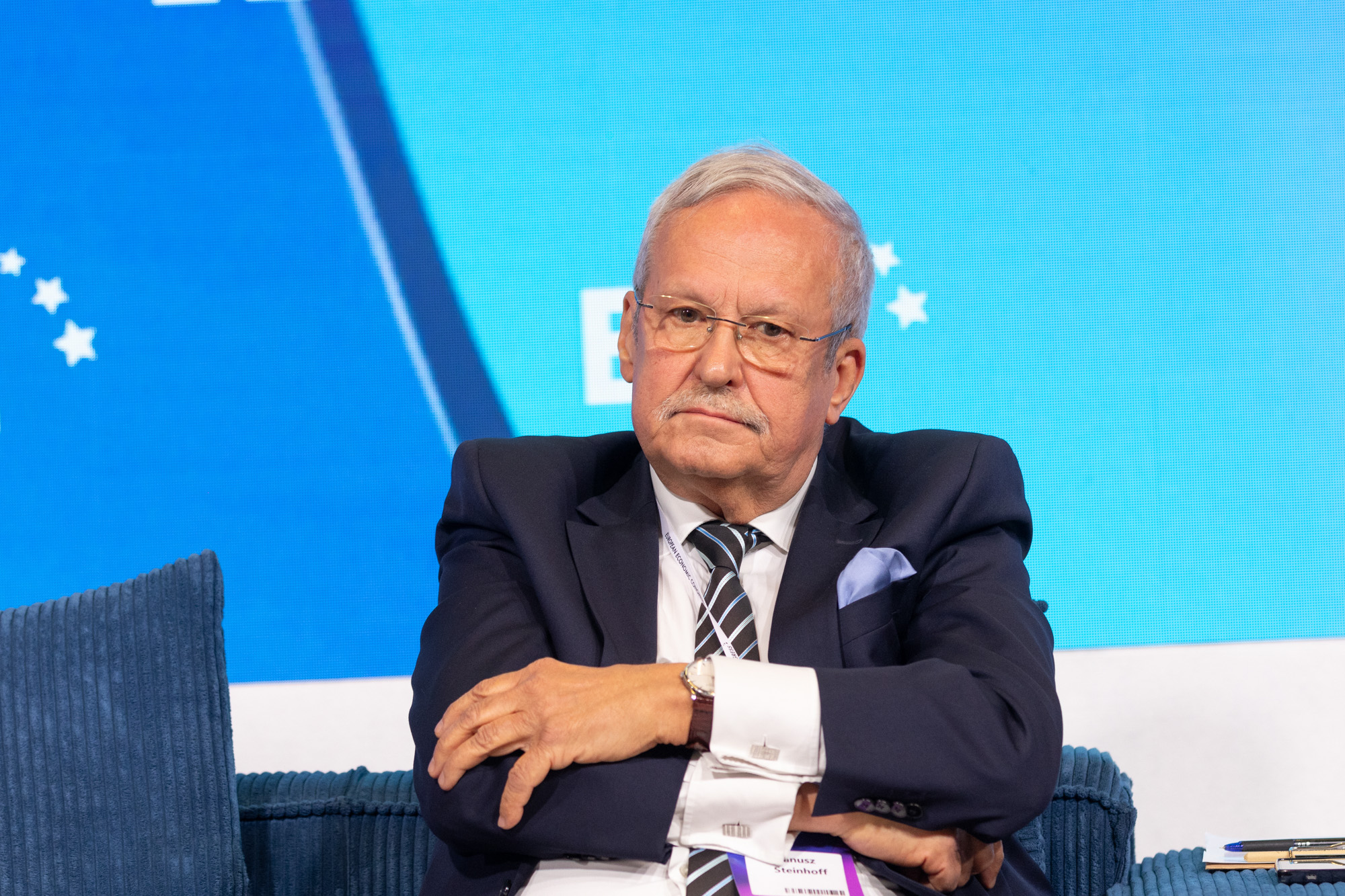
He also pointed out that the EC takes a cautious approach to state aid because it distorts European and global competition.
- Therefore, it can be obtained when it serves to repair the situation in a stable manner, when it supports the restructuring process, when it leads to achieving profitability - he explained.
Janusz Steinhoff also pointed out that mining is an industry that has been treated by politicians as an object, not as a subject, especially in subsequent election campaigns. They - as he put it - conjure reality, convincing about the bright future of the industry.
It is impossible to maintain the mine with such low efficiency.- This is extreme irresponsibility. We need to tell people the truth. The Silesian community knows perfectly well that mining is becoming history - Janusz Steinhoff emphasized. - Economics is brutal, it has its own laws. Most mines in Silesia are unprofitable, generating huge losses resulting from difficult geological conditions on the one hand, and mining is poorly managed on the other. For a dozen or so years, there has been no guiding principle. No one is monitoring the efficiency of work and investments. It is impossible to maintain the mine with such low efficiency. Almost 60 percent of costs are personnel costs - Janusz Steinhoff pointed out.
He also pointed out that the mine closure schedule, which is out of date in light of the energy sector's intentions, should be changed .
- In its strategy until 2030, Tauron announced the closure of all coal units, except for one in Jaworzno. We must face this reality and treat miners seriously - Janusz Steinhoff emphasized. - Most of the budget funds should be directed to protection for miners leaving work - he said.
He also pointed out that so far all industrial restructuring in Upper Silesia had brought the desired results and had not affected those leaving work in steelworks and mines.
Marek Wesoły, MP and former Deputy Minister of State Assets responsible for mining, commented on the EU’s climate policy.
- We do not follow global trends at all - he emphasized, citing the economic policies of countries that rely on coal.
- We are discussing at the Congress to abandon coal mining, while other countries are focusing on this industry. This is a paradox - pointed out Marek Wesoły. - Then we wonder why mining is unprofitable and uneconomical in our country. If you do not follow global trends, you are destroying your industry. The European Union has made mistakes. We have thrown out the entire heavy industry, which is no longer profitable in our country. If policies do not change, there will be no steel industry in Europe - warned Marek Wesoły.
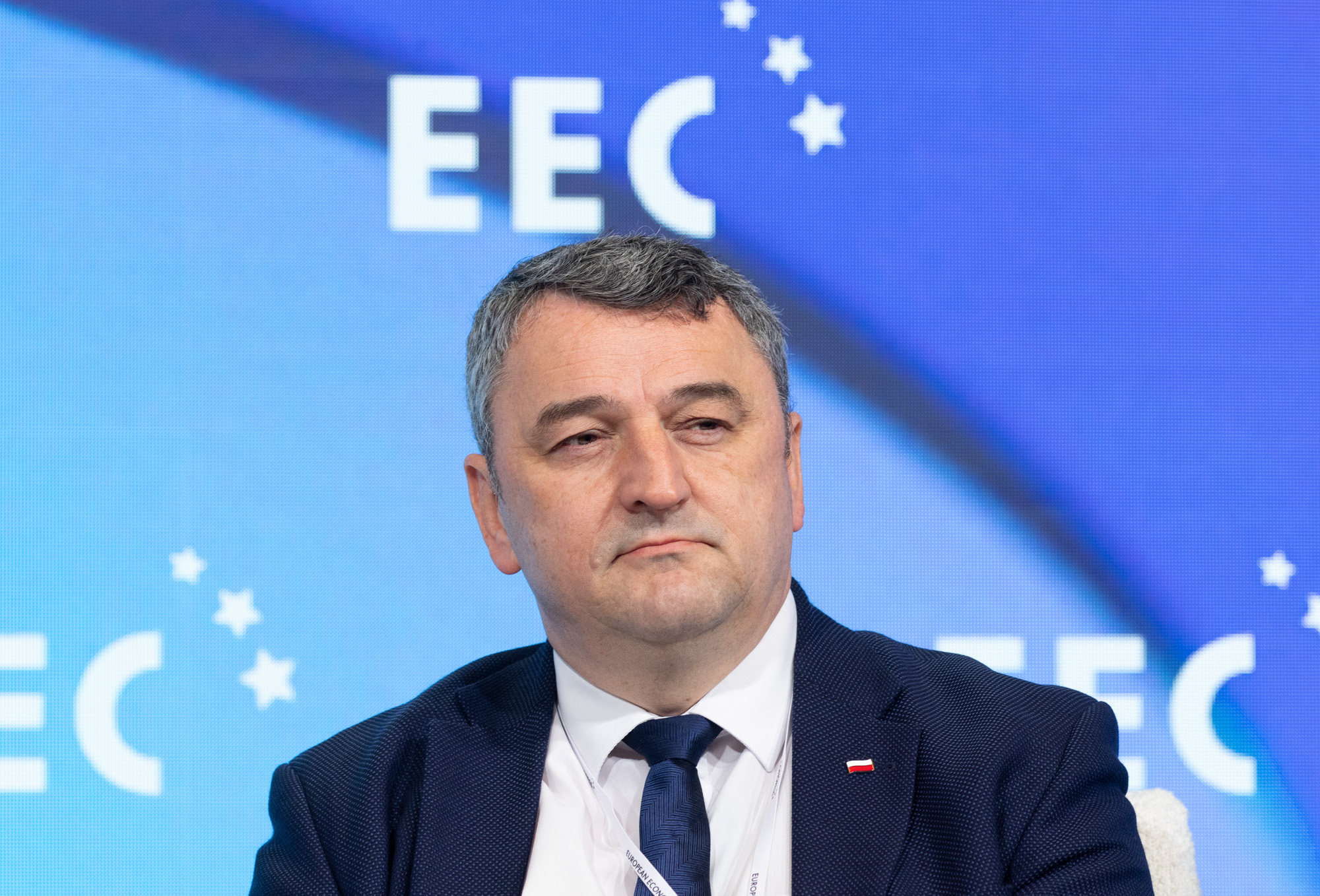
It is known that the mining industry is not only about coal, but also other raw materials. Including those considered critical for the EU economy.
- We produce coking coal and copper in significant quantities. These are the mines of Jastrzębska Spółka Węglowa and our economic champion KGHM - said Krzysztof Galos, Undersecretary of State in the Ministry of Climate and Environment, Chief National Geologist.
He pointed out that no ore mine had been built in Poland since the 1970s. The last ones were the Pomorzany and Rudna mines.
- It is a big challenge for us to be able to think about any new metal ore mines - emphasized Krzysztof Galos, admitting that these would have to be new projects implemented, for example, by KGHM together with other investors, for example in Nowa Sól, where there are documented ore deposits.
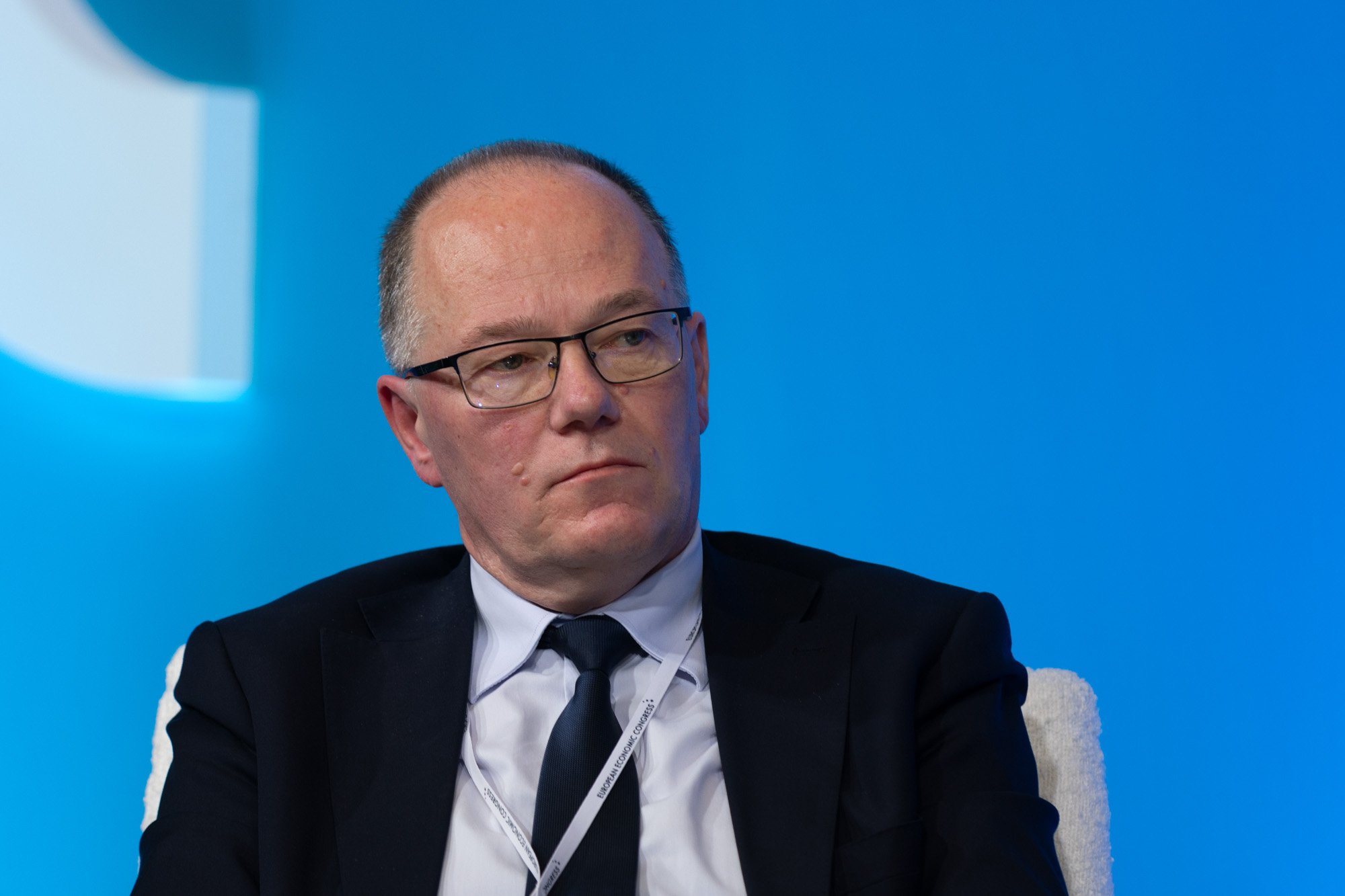
Krzysztof Galos also mentioned Myszków, where deposits of tungsten, copper and molybdenum ores were documented.
- I'm not saying that it will happen, only that it can happen - explained the country's chief geologist. In a month - he noted - a national program for searching for critical raw materials will be announced, because the European Union obliges us to do so.
Jarosław Zagórowski, director of the Central Mining Institute - State Research Institute, former president of Jastrzębska Spółka Węglowa, pointed out that thanks to mining, prosperity has been built in many countries around the world. And it is still being built today.
We still have exceptional competences in the mines- In Poland, mining was also a very important element in the construction of our country. However, what has happened in recent years in hard coal mining has strongly discouraged young people in particular from entering this profession - Jarosław Zagórowski pointed out. - Because very often when we talk about mining in Poland, we mean hard coal, and hard coal is today a relatively small sector in the entire Polish mining industry, which extracts, among other things, copper ore and non-energy raw materials. Here is an example of Lower Silesia - Jarosław Zagórowski pointed out.
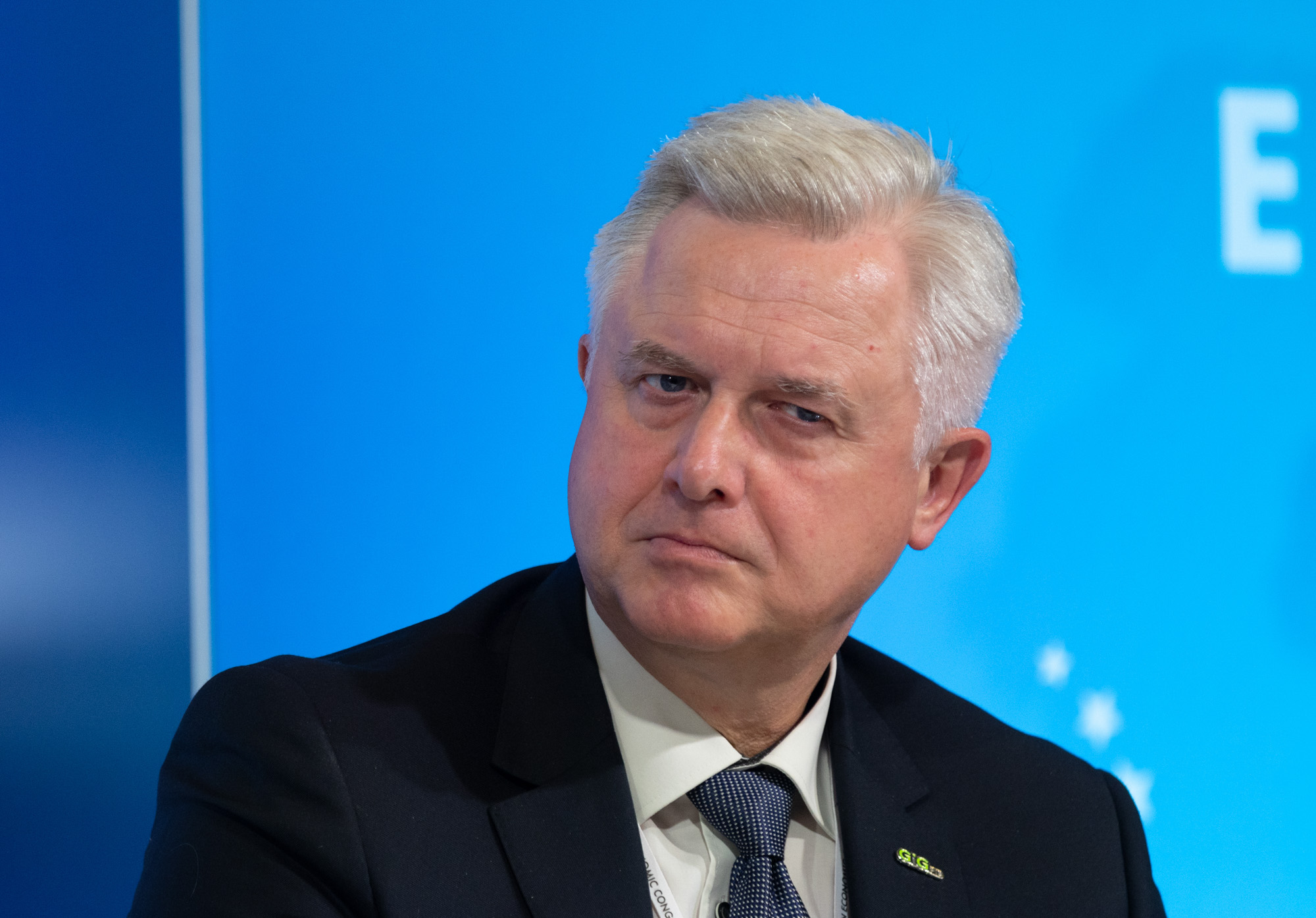
- However, the problem with this hard coal mining has an impact on the fact that our scientific and educational units are getting weaker. We have probably made these miners into whipping boys at our own request - Jarosław Zagórowski emphasized. - We criticize them everywhere, and unfortunately, in recent years, this mining industry has been talked about badly. Young people do not want to go to university (related to mining - editor's note). Universities naturally follow the students, their expectations. So they have started to lose competences related to mining. However, we still have exceptional competences in the mines, because these are competences related to the most difficult mining in the world - Jarosław Zagórowski emphasized.
And he pointed out that nowhere in the world is hard coal extracted from such great depths , with all the associated hazards. Only miners in Poland can cope with this.
- And if we do not use these competences in the near future, for example to exploit rare earth ores, then unfortunately these competences will disappear from us - warned Jarosław Zagórowski. - Just as they disappeared in Germany. There, they are mainly concerned with reclamation, surface protection, protection against mixing highly mineralized mine waters with surface waters. However, they are no longer involved in mining. We are trying to maintain these competences at the Institute for as long as possible. We will see how long we will manage to do this. However, such a threat exists. Let me give you one example. If we were to design a mine today - we do not have a single design office that is able to prepare a specific project. We do not have these design offices today. And we would have a huge problem. However, when it comes to the exploitation of minerals - yes, we still have these competences. They are worth protecting, they are worth maintaining - emphasized Jarosław Zagórowski.
wnp.pl





